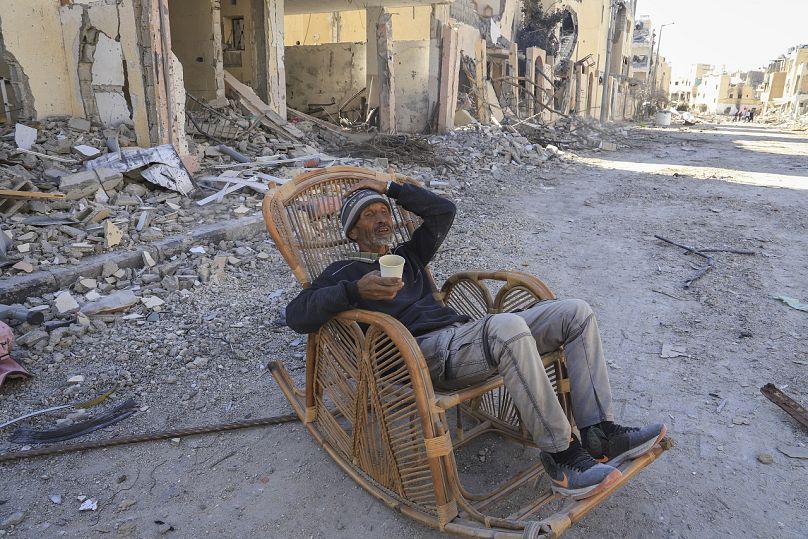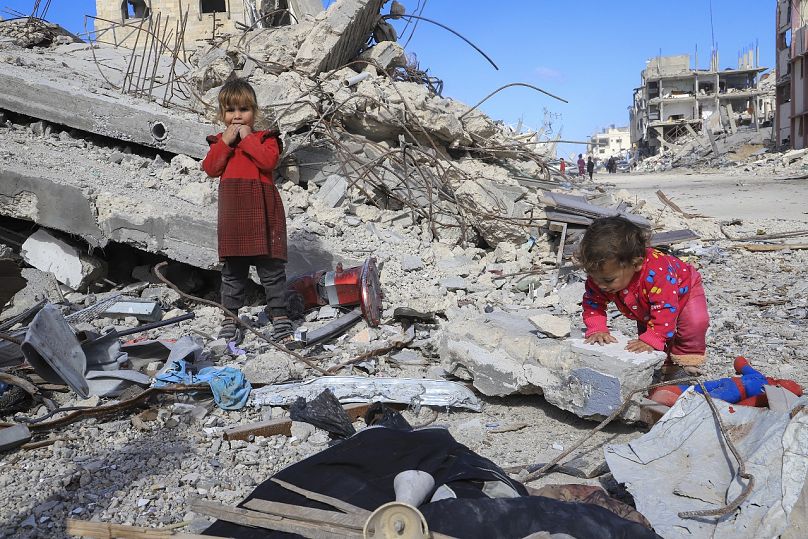Thousands of Gazans have begun to travel back to the homes they evacuated earlier in the war.
Palestinians in Gaza have said they slept peacefully for the first time in more than a year, without the fear of being bombed, following the start of a ceasefire between Israel and Hamas.
The deal, which went into effect on Sunday, brought the first pause in fighting since November 2023, when a week-long agreement between the two sides allowed for a hostage exchange.
The skies above Gaza and Israel were silent overnight, as many displaced Palestinians began returning to what remained of their homes. They started to check on relatives left behind and, in many cases, to bury their dead.
The Israeli army invaded Gaza after Hamas killed around 1,200 people and kidnapped 251 others in southern Israel on 7 October 2023, in the mostly deadly ever attack against the Jewish state.
Since then, more than 46,000 Palestinians have been killed, most of them civilians, according to Gaza's Health Ministry. And around 1.9m of Gaza's 2.2m people have been displaced.
After 15 months of devastating war, "yesterday, there were no warplanes or anything, so we slept comfortably," said Maisara Abu-Qoush, a displaced Palestinian from Rafah, a city in southern Gaza.
Many were seen returning from Khan Younis to Rafah, only to find massive destruction.
People trekked through the wreckage, some on foot and others hauling their belongings on donkey carts.
"We are tired of the bombing. The people of Rafah felt humiliated and displaced. We walked long distances. We were very afraid," said Fatma Hamad, another displaced person from Rafah.
The return of Palestinian families to their homes comes amid looming uncertainty about whether the ceasefire deal will last, who will govern the territory and how it will be rebuilt.
The United Nations has said that reconstruction could take more than 350 years if Gaza remains under an Israeli blockade.
More than 90% of houses in the devastated Gaza Strip have been destroyed or damaged since the war broke out in October 2023, according to the UN.
Aid enters Gaza
United Nations humanitarian officials say that more than 630 trucks of humanitarian aid have entered Gaza since the implementation of the ceasefire deal between Israel and Hamas.
In a post on X, Tom Fletcher, the United Nations' Under-Secretary-General for Humanitarian Affairs, said that over 630 trucks had entered Gaza on Sunday, with at least 300 of them bringing humanitarian assistance to the north of the territory.
“There is no time to lose,” Fletcher wrote. “After 15 months of relentless war, the humanitarian needs are staggering.”
Aid workers have been scrambling to address Gaza’s dire humanitarian needs after 15 months of devastating war and tough Israeli restrictions on aid deliveries and the movement of convoys within Gaza. Lawlessness and looting by armed gangs has also been a major obstacle to aid distribution.
Before this latest Israel-Hamas war began, Gaza was under a crippling Israeli-Egyptian blockade that allowed the entry of some 500 trucks a day carrying commercial supplies and humanitarian aid.
The initial phase of the Gaza ceasefire deal will last six weeks. During this period, around 600 aid trucks a day will enter the territory, while 33 Israel hostages held by Hamas will be released in exchange for hundreds of Palestinian prisoners.
The first three Israeli hostages returned to Israel on Sunday, while 90 Palestinian prisoners were also freed.













